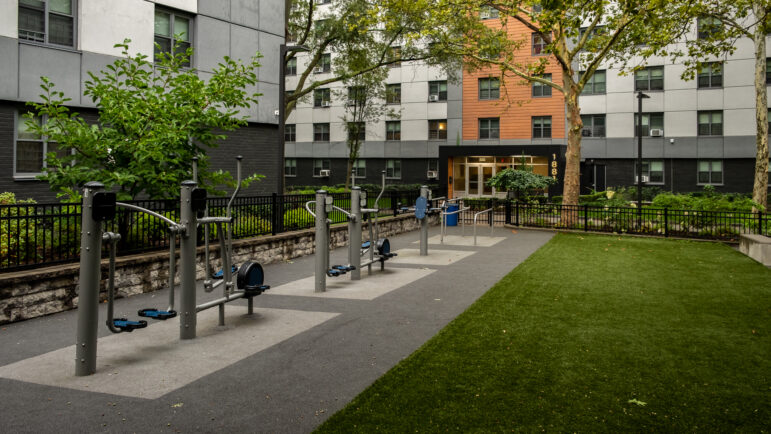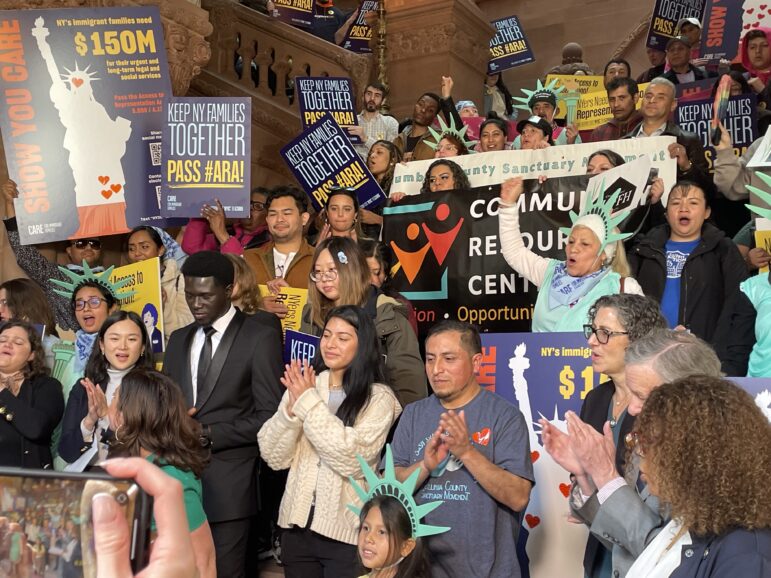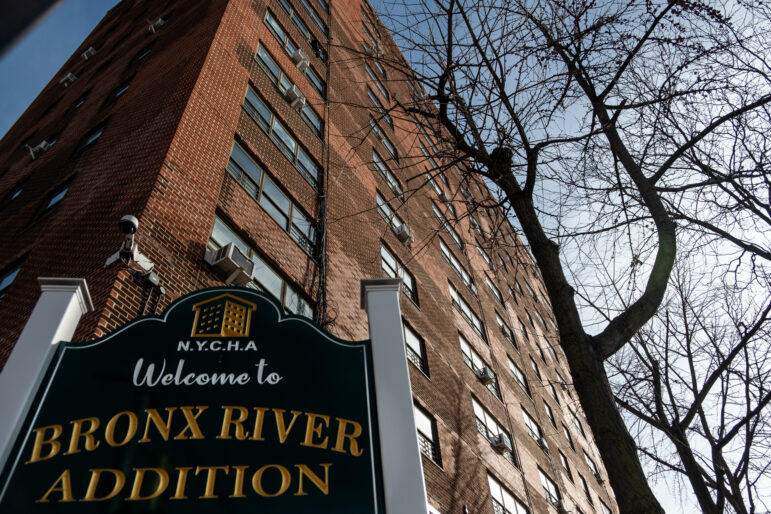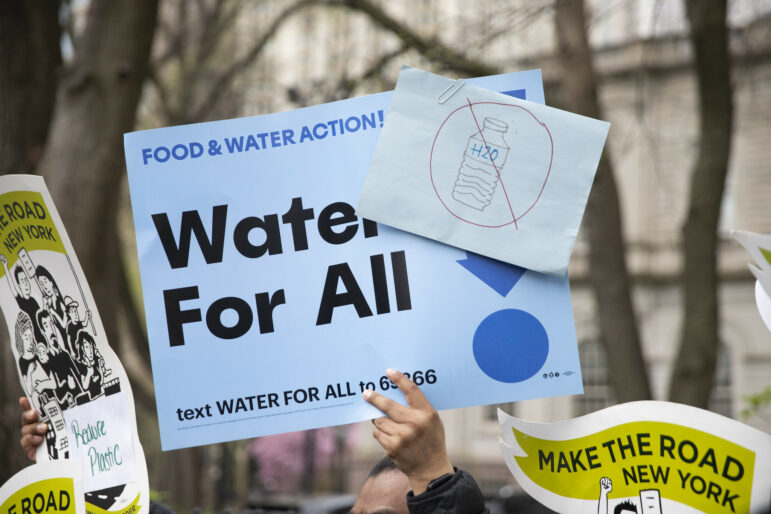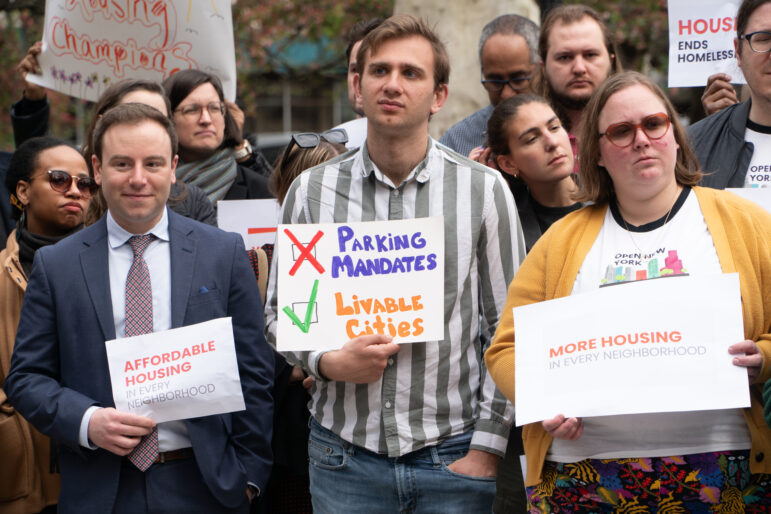When a handful of demonstrators clashed with police on Monday evening near Madison Square Garden–including one who reportedly knocked a cop off a scooter and injured him–the incident and its attendant media coverage drowned out the message of the Poor People’s Economic Human Rights Campaign, which was marching a block behind. “None of us know who did it or what happened,” said Cheri Honkala, the group’s founder.
So for the record, here’s what it sounded like on the group’s march from the U.N., which the NYPD permitted to go down Second Avenue and west on 23rd Street: “I went down to the president’s house and I/Took back what he stole from me. Took back my dignity/Took back my humanity. Cuz it’s under my feet, under my feet, under my feet, under my feet/Ain’t no system gonna walk all over me.”
Little kids and their moms, student volunteers, teenagers in technical schools, formerly homeless people who now run their own nationally recognized nonprofit organization–this was their song. Their message to midtown: poor people are politically active, poor people can take charge of their lives, and poor people can demand social policies that don’t run them deeper into the ground.
“Under My Feet” started as the anthem of the Kensington Welfare Rights Union, a Philadelphia grassroots group that has organized poor and homeless individuals and families since the early 1990s to make themselves seen and heard as a political force. Honkala has taken KWRU to New York before, as part of an ongoing campaign to get the U.S. to recognize adequate housing, health care and food as basic human rights, just like the U.N. does. In 1998, a busload of members (plus yours truly and a documentary film crew) took a cross-country ride to spread the word and come into the spotlight. This time, KWRU and allied groups have come to protest the Republican National Convention under the umbrella of the Poor People’s Economic Human Rights Campaign. Members camped out in Bushville, a tent city they set up in–where else–Bushwick, at Mount Zion Christian Church of Christ.
Many of the several thousand marchers who joined the midtown procession had never heard of the Philadelphia group or its national offspring. “Any march that’s going on, I’m going to be there!” said Eric Pawluk, who’s studying business at Fordham University. He happens to think international poverty is the more urgent problem to deal with. All the same, Pawluk sees the trouble at home: his Bronx neighborhood is full of homeless people.
Marcher after marcher had stories like this to tell. There was Lynn Fitzgerald, who works at a Yonkers homeless shelter and is appalled at the quality of that city’s schools. And the flip side: California teacher Scottie Smith, who complained that many of her students can’t learn because they have unstable housing and pervasive health problems in their families. And the Sonoma, California, mom who’s worried that she’ll become homeless again if she ever loses her federal rent subsidy. “This is very personal,” said Dani Burlison, who raised money to come to the demonstrations.
The NYPD escort accompanying the march under a last-minute agreement was generally respectful and polite–perhaps because Honkala had praised the police as “brothers and sisters working without a contract.” “It’s great, it’s really great,” said Miriam Kramer, chair of the National Welfare Rights Union, remarking on the turnout of several thousand for a cause that’s usually on the margins. “And the police is marching with us!” [8/31]


